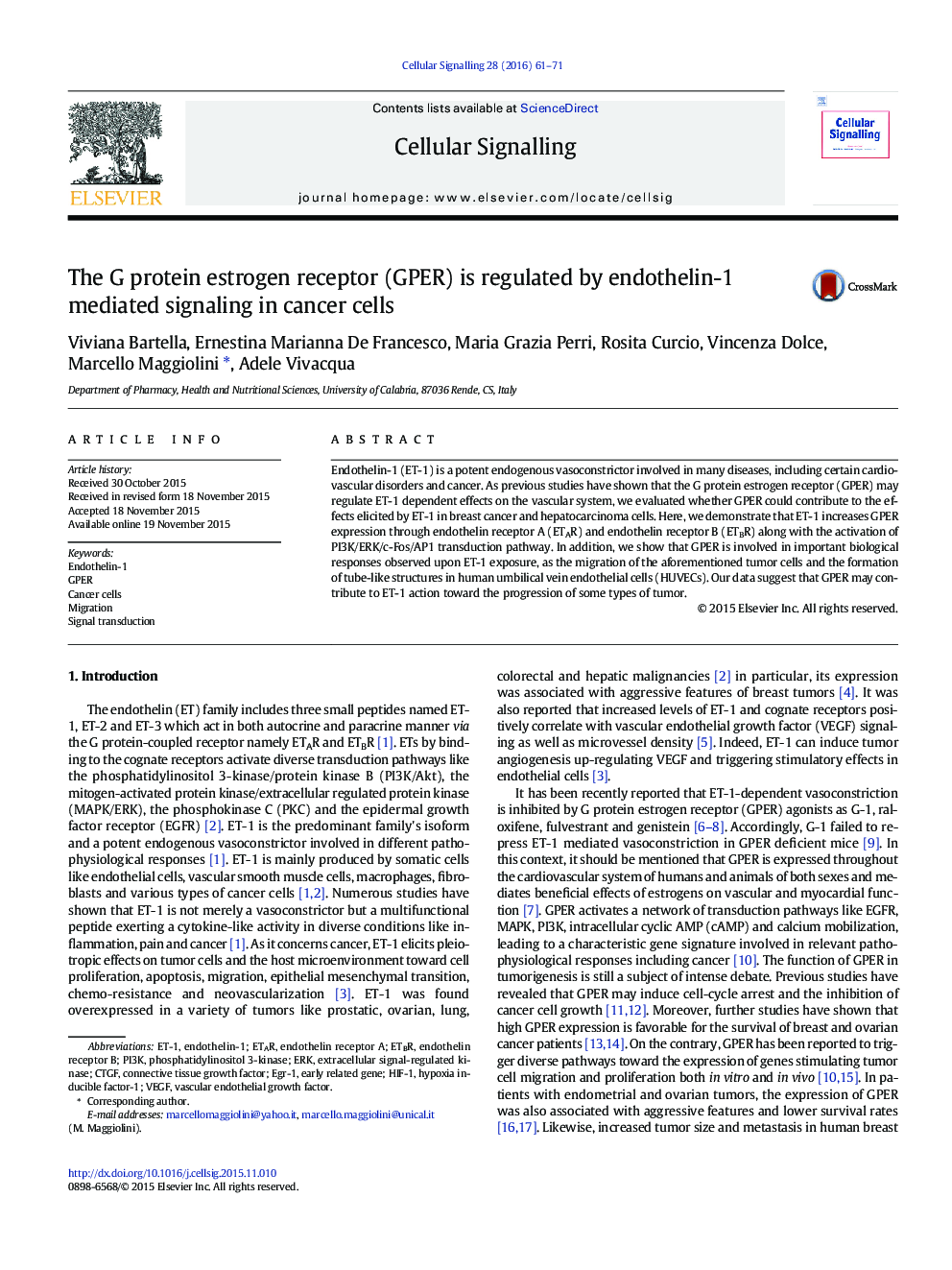| Article ID | Journal | Published Year | Pages | File Type |
|---|---|---|---|---|
| 10814780 | Cellular Signalling | 2016 | 11 Pages |
Abstract
Endothelin-1 (ET-1) is a potent endogenous vasoconstrictor involved in many diseases, including certain cardiovascular disorders and cancer. As previous studies have shown that the G protein estrogen receptor (GPER) may regulate ET-1 dependent effects on the vascular system, we evaluated whether GPER could contribute to the effects elicited by ET-1 in breast cancer and hepatocarcinoma cells. Here, we demonstrate that ET-1 increases GPER expression through endothelin receptor A (ETAR) and endothelin receptor B (ETBR) along with the activation of PI3K/ERK/c-Fos/AP1 transduction pathway. In addition, we show that GPER is involved in important biological responses observed upon ET-1 exposure, as the migration of the aforementioned tumor cells and the formation of tube-like structures in human umbilical vein endothelial cells (HUVECs). Our data suggest that GPER may contribute to ET-1 action toward the progression of some types of tumor.
Keywords
GPERHIF-1CTGFERKETARPI3KET-1EtBrEGR-1endothelin-1Cancer cellshypoxia inducible factor-1Vascular endothelial growth factorVascular Endothelial Growth Factor (VEGF)Connective tissue growth factorPhosphatidylinositol 3-kinaseMigrationSignal transductionextracellular signal-regulated kinaseendothelin receptor Aendothelin receptor B
Related Topics
Life Sciences
Biochemistry, Genetics and Molecular Biology
Biochemistry
Authors
Viviana Bartella, Ernestina Marianna De Francesco, Maria Grazia Perri, Rosita Curcio, Vincenza Dolce, Marcello Maggiolini, Adele Vivacqua,
